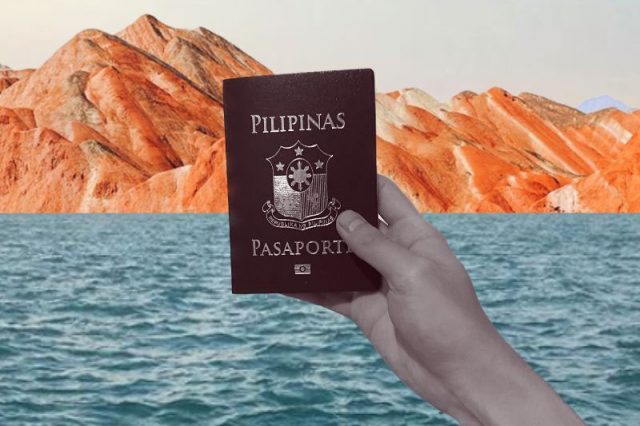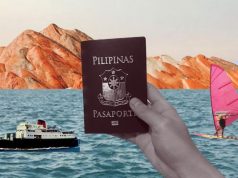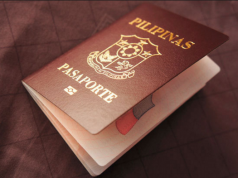The Philippines ranked 80th in the latest global index of passports, thereby entailing less freedom to travel for work, pleasure and health care amid the still raging COVID-19 pandemic.
The Henley Passport Index or the Henley and Partners Global Passport Index, which is considered the authoritative global ranking of passports, released its “Global Mobility Report 2022” for the third quarter of the year.
In the list, the Philippine passport ranked 80th out of 199 different passports and across 227 destinations that were ranked based on global mobility.
This placement means that Filipinos can only visit 67 countries visa-free.
Going to other states, therefore, would be extra difficult for travelers whether it’s for work, study, pleasure or other purposes.
They would have to undergo the tedious process of visa applications. These include months of planning, document gathering and paying money just to go overseas.
This ranking, however, was a bit higher than the same period last year when the country placed at the 82nd spot on the global index.
READ: Philippine passport ‘power’ plunged in 2021. Here’s what it means for Filipino passport-holders.
Within this quarter, the Philippine passport ties with two other passports, as follows:
- Cape Verde Islands
- Uganda
The most powerful passports, meanwhile, are the following:
- Japan – access to 193 countries
- Singapore – access to 192 countries
- South Korea – access to 192 countries
- Germany – access to 190 countries
- Spain – access to 190 countries
This index was based on exclusive data from the International Air Transport Authority (IATA).
Researchers of the Henley Passport Index maintain accuracy by gathering information about visa policies in the world from readily or publicly available and reliable online sources.
What does it mean to have a powerful passport?
Holding a powerful passport means being able to have a choice to go to places with access to individual needs, according to the “Global Mobility Trends” of Henley and Partners.
READ: LIST: Countries, territories Filipinos can visit without visa
These needs include health care and education.
“The immeasurable value of peace, democracy, and the rule of law has never been more evident. In addition to this, concerns about climate change, and access to excellent healthcare and education continue to prompt increasing numbers of global citizens to invest in portfolios of citizenships to cover any eventuality for their families,” the platform said.
“In unpredictable times, the ultimate asset is holding multiple citizenships or having the right to reside in other countries, as each guarantees a suite of personal access rights,” it added.
Stephen Klimczuk-Massion, Quondam Fellow of Oxford University, also said that peaceful countries tend to have powerful passports.
“In this context, a passport is more than ever a calling card, which, depending on which passport you carry and where you are going, will have an impact on the kind of welcome you will receive, where you can go, and how safe you will be when you get there,” he said.
Massion further noted that passports are no longer just travel documents. They can mean life or death to some travelers.
“Now more than ever, it’s a mistake to think of a passport as merely a travel document that allows you to get from A to B. The relative strength or weakness of a particular national passport directly affects the quality of life for the passport holder and may even be a matter of life and death in some circumstances,” he said.









